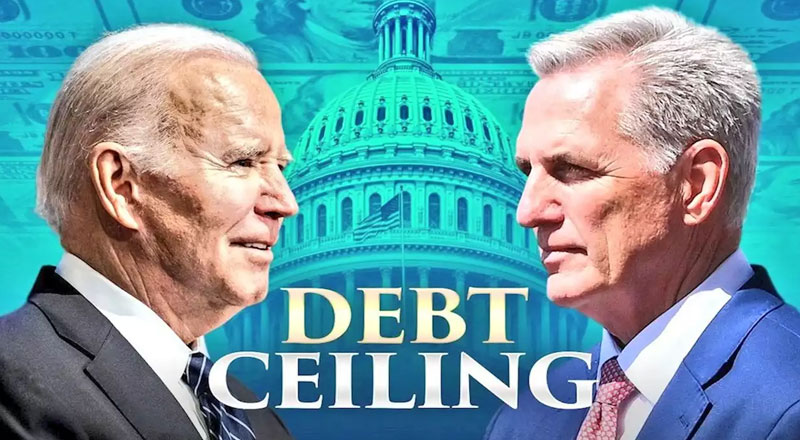Legislation brokered by President Joe Biden and House Speaker Kevin McCarthy to lift the $31.4 trillion U.S. debt ceiling and achieve new federal spending cuts passed an important hurdle, advancing to the full House of Representatives for debate and an expected vote on passage.
The House Rules Committee voted 7-6 to approve the rules allowing debate by the full chamber. Two committee Republicans, Representatives Chip Roy, and Ralph Norman, bucked their leadership by opposing the bill. That vote underscored the need for Democrats to help pass the measure in the House, which is controlled by Republicans with a narrow 222-213 majority.
House passage would send the bill to the Senate. The measure needs congressional approval before June 5, when the Treasury Department could run out of funds to pay its debts for the first time in U.S. history. If the Treasury Department cannot cover make all its payments, or if it was forced to prioritize payments, that could trigger economic chaos in the U.S. and global economies.
Biden and McCarthy have predicted they will get enough votes to pass the 99-page bill into law before the June 5 deadline.
The non-partisan budget scorekeeper for Congress said the legislation would reduce spending from its current projections by $1.5 trillion over 10 years beginning in 2024. The Congressional Budget Office also said the measure, if enacted into law, would reduce interest on the public debt by $188 billion.
McCarthy called the bill the “most conservative deal we’ve ever had.”
All four Democrats on the Rules Committee voted against the bill, as they typically do on Republican-backed legislation. It was unclear whether that might influence other Democrats to do the same even as Democratic Leader Hakeem Jeffries said his party would provide the support McCarthy needs.
Many Democrats in Congress did not want Biden to engage in budget-cutting negotiations with Republicans until they lifted their hold on enacting a debt limit bill. White House Budget Director Shalanda Young, who was one of Biden’s lead negotiators, urged Congress to pass the bill.
A Senate vote could possibly stretch into the weekend if lawmakers in that chamber try to slow its passage.
In another win for Republicans, it would shift some funding away from the Internal Revenue Service, although the White House says that should not undercut tax enforcement. Biden can point to gains as well. The deal leaves his signature infrastructure and green-energy laws largely intact, and the spending cuts and work requirements are far less than Republicans had sought.
Republicans have argued that steep spending cuts are necessary to curb the growth of the national debt, which at $31.4 trillion is roughly equal to the annual output of the economy.
Most of the savings would come by capping spending on domestic programs like housing, education, scientific research, and other forms of “discretionary” spending. Military spending would be allowed to increase over the next two years. The debt-ceiling standoff prompted rating agencies to warn that they might downgrade U.S. debt, which underpins the global financial system.
Markets have reacted positively to the agreement so far.
(With inputs from agencies)





